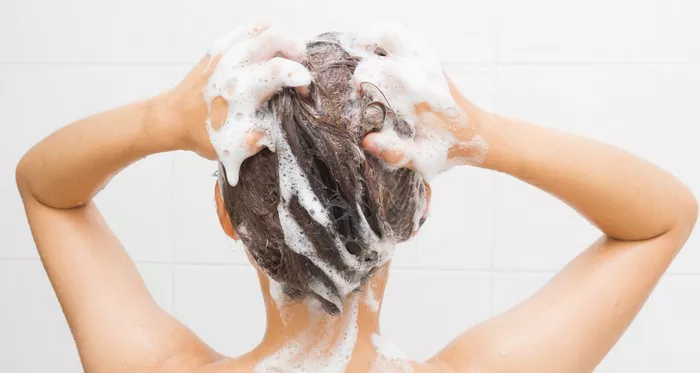Maintaining the health of your hair involves navigating through a variety of factors, including weather, physical activity, and the products you use. The state of your scalp, influenced by sweat, seasonal changes, and hair product residue, also plays a crucial role. With all these elements in mind, the question arises: how often should one shampoo to ensure the optimal health of both hair and scalp?
A recent trend on TikTok, #nopoo, challenges the conventional use of shampoo, amassing over 288 million views. This trend showcases individuals opting for alternative cleansing methods, such as apple cider vinegar or plain water. Despite its popularity, there is limited scientific evidence supporting the proclaimed benefits of this approach.
To shed light on the matter, we consulted experts to determine the ideal frequency of hair washing based on hair type, scalp health, lifestyle, and other considerations.
The Significance of Hair Washing
Before delving into specifics, it’s essential to revisit why we wash our hair. According to Dr. Fatima Fahs, a board-certified dermatologist and founder of Dermy Doc Box, hair washing serves dual purposes: cleansing the scalp and the hair strands. Similar to cleansing facial skin, it removes oil, debris, and dirt from the scalp. However, excessive washing, depending on individual scalp and hair types, can lead to dryness, itching, and potential hair loss.
Expert Recommendations on Washing Frequency
Determining how often one should wash their hair is highly individualized due to varying scalp conditions and hair types. Factors such as curly or straight hair, oiliness, and fine or thick hair all come into play. Lifestyle choices, including exercise frequency, exposure to dust and chemicals, swimming in chlorinated pools, and the use of hair products, also influence washing frequency.
Dr. Jennifer Davis Alexander, a holistic skin scientist, emphasizes the impact of ethnicity on hair care. Individuals of African descent may have drier hair and are advised to avoid daily washing, while those with Afro-textured, kinky hair may extend the time between washings. On the other hand, individuals of Caucasian and Asian descent, with round, symmetrical hair follicles, may experience an oilier scalp, benefitting from more frequent washing.
Dr. Alexander suggests understanding your hair type and considering various factors to make an informed decision. For personalized recommendations, consulting a board-certified dermatologist is advised.
Proper Hair Washing Technique
When washing your hair, the American Academy of Dermatology recommends focusing on massaging the shampoo into the scalp. This not only cleanses the scalp but also enhances blood flow, nourishing both the scalp and hair follicles. Allowing the shampoo to sit on the scalp for a few minutes before rinsing ensures efficient cleansing. Following up with conditioner on the hair ends is also recommended.
Consequences of Infrequent Washing
While there may be a social media trend promoting the avoidance of shampoo (#nopoo), experts caution against the potential consequences of scalp buildup. This buildup can clog hair follicles, weigh down the hair, and disrupt scalp pH, sebum levels, and the scalp microbiome. Despite individual variations, regular shampooing remains a key aspect of maintaining scalp and hair health.
Stretching Time Between Washes
For those aiming to extend the time between washes, light exercise and strategic use of dry shampoo are suggested. However, excessive use of dry shampoo can lead to buildup, irritating the scalp.
Shampoo Selection Matters
Choosing a shampoo and conditioner tailored to your specific hair type is crucial. Factors such as oily or dry scalp, moisturizing needs, and product buildup should influence your choice. Clarifying shampoos, designed to remove buildup, are recommended for those using a significant amount of hair products.
Conclusion
In conclusion, washing your hair is a vital practice for removing dirt, oil, and product buildup, promoting the overall health of your hair and scalp. The ideal frequency varies based on factors like hair type, lifestyle, and individual preferences, ranging from daily to bi-monthly. Understanding your hair and consulting with experts can guide you in establishing a personalized hair-washing routine.


